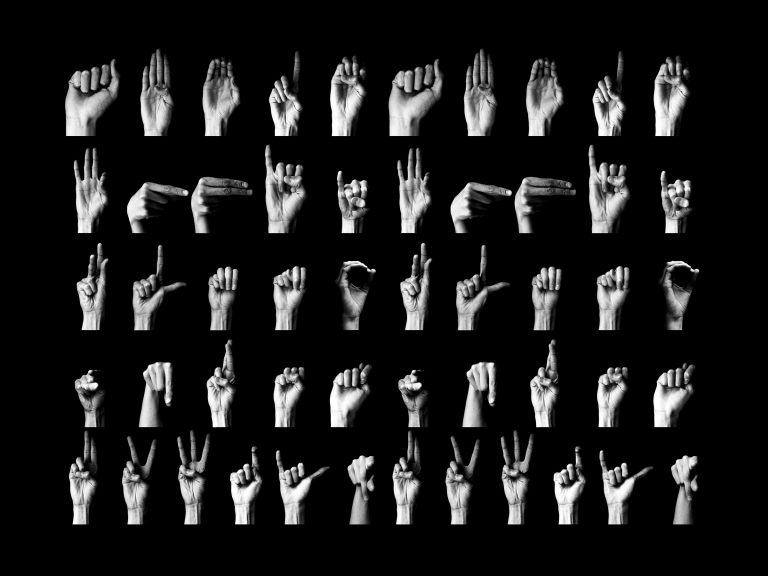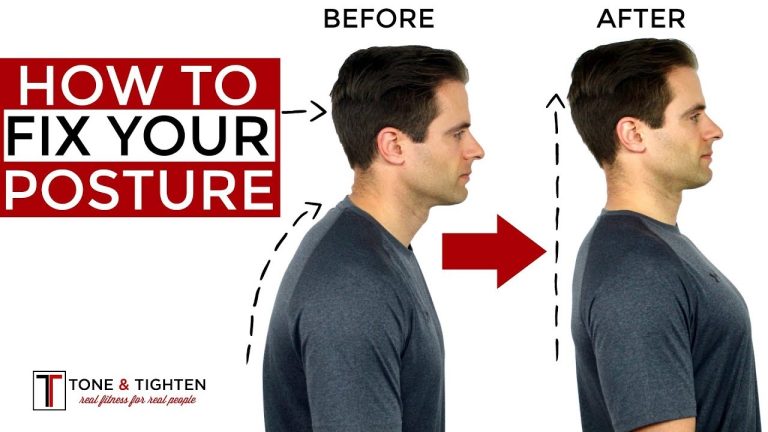Scratching Nose Body Language Meaning
Did you know that scratching your nose can convey hidden messages? That’s right, scratching nose body language can reveal a lot about a person’s thoughts and emotions. So, if you’ve ever wondered why someone scratches their nose during a conversation, you’re in the right place!
In this article, we’ll explore the fascinating world of scratching nose body language, uncovering the secrets behind this common gesture. From subconscious signals to hidden meanings, we’ll dive into the different interpretations and what they might reveal about a person’s intentions. So, get ready to decode the nose-scratching mystery!
But first, let’s start with the basics. Why do we scratch our noses in the first place? Is it just an itch, or is there more to it? Join us as we unravel the intriguing world of scratching nose body language and discover the fascinating insights it can provide. Let’s get started!

Decode the Secrets: Scratching Nose Body Language
Body language is a powerful form of non-verbal communication that can reveal a lot about a person’s thoughts and feelings. One intriguing aspect of body language is the act of scratching the nose. Although it may seem like a harmless habit, scratching the nose can actually be a subtle indicator of hidden emotions or underlying thoughts. In this article, we will delve into the world of scratching nose body language, exploring its various interpretations and shedding light on its significance in different contexts.
The Signals Behind Scratching the Nose
Scratching the nose can be a revealing gesture that speaks volumes without the need for words. Here are three key interpretations of this body language phenomenon:
The Discomfort Signal
One common explanation for nose scratching is discomfort. When people feel anxious or nervous, they may instinctively scratch their noses as a self-soothing mechanism. The act of scratching can provide temporary relief and distract the mind from the underlying discomfort. It is crucial to consider the context when interpreting this signal, as discomfort can arise from a variety of sources, such as social anxiety, deception, or physical discomfort.
In some cases, scratching the nose may indicate dishonesty or deception. When individuals lie or withhold information, they may experience a spike in anxiety, causing them to scratch their noses as a subconscious attempt to alleviate their guilt or unease. However, it is essential not to jump to conclusions solely based on this gesture, as it is just one piece of the puzzle in deciphering body language cues.
Furthermore, nose scratching can also be linked to physical discomfort or irritation, such as allergies, dry skin, or even the presence of an irritating substance. Taking into account the overall context, including the individual’s demeanor and other body language cues, can help provide a more accurate understanding of the underlying emotions or motivations.
The Doubt or Evaluation Signal
Another interpretation of nose scratching is the signal of doubt or evaluation. When individuals are in a situation where they need to make a decision, they may subconsciously scratch their noses as they weigh the pros and cons in their minds. This gesture can suggest a moment of contemplation or reflection, indicating that the person is considering different options or possibilities.
The timing, frequency, and duration of the scratch can offer further insights into the individual’s thought process. A quick, subtle scratch may indicate momentary hesitation or a passing thought, while a more prolonged or repeated scratch could suggest deeper reflection or indecision. As with any body language cue, it is crucial to consider other contextual factors before drawing conclusions.
Additionally, nose scratching can also be a subconscious response to the need for more information. When individuals are uncertain or seeking clarification, they may scratch their noses as a way to signal their desire for further explanations or details. By paying attention to the nuances of this gesture, we can gain valuable insights into a person’s thought patterns and decision-making processes.
The Attention Diversion Signal
A less common but still significant interpretation of nose scratching is the attention diversion signal. In certain situations, individuals may scratch their noses as a way to redirect attention or create a momentary distraction. This can be seen in instances where someone wants to avoid eye contact, shift focus away from themselves, or maintain a sense of control in a conversation or interaction.
By scratching the nose, individuals can subtly redirect the conversation or switch the spotlight onto a different topic or person. This strategy can be employed consciously or unconsciously, depending on the individual’s intentions and level of self-awareness. Understanding the motivations behind this body language cue can help us navigate social situations and better perceive the dynamics at play.
It is important to note that body language cues can vary between individuals, cultures, and contexts. The interpretations mentioned above should serve as general guidelines rather than definitive rules. Truly deciphering body language requires a holistic approach that takes into account multiple cues, personal characteristics, and situational factors.
Scratching Nose Body Language in Action
Now that we have explored the different signals behind nose scratching body language, let’s take a closer look at how it manifests in specific scenarios:
In Social Interactions
When engaged in social interactions, individuals may scratch their noses to alleviate anxiety or nervousness. This can occur during job interviews, public speaking engagements, or even casual conversations with unfamiliar individuals. Observing nose scratching alongside other signs of discomfort, such as fidgeting or avoiding eye contact, can provide valuable insights into the emotional state of the person.
It is essential to approach these observations with sensitivity and empathy, as discomfort can stem from various sources and should not be automatically associated with dishonesty or deceit. By understanding the nuances of nose scratching in social settings, we can foster more meaningful connections and create a comfortable environment for open communication.
In Detecting Deception
While nose scratching alone cannot definitively indicate deception, it can serve as a red flag when combined with other suspicious behaviors. When individuals lie or withhold information, their anxiety levels often increase, triggering non-verbal cues like nose scratching. Detecting deception requires a comprehensive analysis of multiple body language signals, verbal responses, and contextual factors.
It is essential to approach situations involving potential deception with caution and fairness. Accusing someone solely based on a single gesture can lead to misunderstandings and damaged relationships. If deception is suspected, it is advisable to gather additional evidence or seek professional assistance to ensure accurate assessments.
In Decision-Making
Scratching the nose can offer valuable insights into an individual’s decision-making process. People may engage in this gesture when faced with difficult choices or moments of uncertainty. By observing nose scratching alongside other decision-related cues, such as furrowed brows or biting the lip, we can gain a deeper understanding of the factors at play.
As individuals evaluate options and consider consequences, nose scratching can provide a window into their internal thought processes. Understanding the role of this body language cue in decision-making can enhance our ability to engage in effective communication and collaboration, particularly in professional settings.
Unraveling the Mysteries: Insights and Tips
Now that we have explored the intricacies of scratching nose body language, here are some insights and tips to help you navigate this fascinating world:
Context is Key
Always consider the context when interpreting nose scratching body language. Is the person in a stressful situation? Are there other signs of discomfort or anxiety? Is there a logical explanation for the gesture, such as allergies or physical discomfort? Taking a holistic view of the situation can prevent misinterpretation and ensure a more accurate understanding.
Look for Patterns
Instead of relying solely on a single occurrence of nose scratching, look for patterns or clusters of body language cues. Multiple instances of nose scratching, combined with other relevant signals, can provide a more comprehensive picture of the individual’s emotional state or thought process. Be observant and patient in your analysis.
Consider Cultural Differences
Body language cues can vary among different cultures and societal norms. What may be interpreted as discomfort or deception in one culture may have entirely different connotations in another. When interpreting nose scratching body language, be mindful of cultural differences and research specific cultural norms to ensure accurate assessments.
Observe Baseline Behavior
Understanding an individual’s baseline behavior is essential for accurate interpretation. Different people have different body language patterns, and it is crucial not to jump to conclusions based solely on a single gesture. By establishing a baseline through observation, you can better identify variations and deviations that may provide valuable insights into a person’s thoughts or emotions.
Practice Empathy and Compassion
When interpreting body language cues, always approach the process with empathy and compassion. Non-verbal signals are influenced by a complex interplay of emotions, experiences, and personalities. Avoid making hasty judgments and strive to create an environment that encourages open communication and understanding.
Seek Professional Assistance when Necessary
If you find yourself in situations where accurate interpretation of body language cues is crucial, such as during a job interview or negotiation, consider seeking professional assistance. Body language experts or psychologists can provide valuable insights and guidance tailored to specific contexts and goals.
In conclusion, scratching the nose is a multifaceted form of body language that can reveal valuable information about a person’s emotions, thoughts, and intentions. Understanding the various signals behind nose scratching and interpreting them in the appropriate context can help us develop stronger connections, make informed judgments, and navigate social interactions more effectively. By embracing the complexities of body language, we can elevate our communication skills and enhance our understanding of those around us.
Key Takeaways: Scratching Nose Body Language
- Scratching the nose can indicate discomfort or uncertainty.
- It may also be a sign of deception or dishonesty.
- Nose scratching can be a subconscious reaction to stress or anxiety.
- Observing other nonverbal cues is important to interpret nose scratching in context.
- Understanding body language can help in better communication and reading people.
Frequently Asked Questions
Are you curious about the meaning behind nose-scratching as a form of body language? Check out these engaging Q&A pairs to satisfy your curiosity.
1. Why do people scratch their nose when they’re nervous?
When someone is feeling nervous or anxious, their body may release adrenaline, causing an itchy sensation. Scratching the nose is an unconscious response to relieve the discomfort. The act of scratching distracts the brain from the stress and temporarily calms the person down. It’s a way for the body to subconsciously cope with anxiety.
However, it’s important to note that nose-scratching alone doesn’t always indicate nervousness. People scratch their noses for various reasons, such as having an actual itch or allergies. It’s essential to consider the context and other accompanying body language to accurately interpret the meaning.
2. Can nose-scratching be a sign of deceit?
While nose-scratching can sometimes be associated with deception, it is not a definitive indication of lying. It’s crucial to consider other nonverbal cues and the overall context to make an accurate judgment. Nose-scratching alone can be a response to an itch or allergies, especially in stressful situations where the body releases adrenaline.
If you notice repetitive nose-scratching accompanied by other cues like avoiding eye contact, fidgeting, or changes in voice tone, it might suggest possible dishonesty. However, always be cautious when interpreting body language cues and rely on multiple signals before making conclusions.
3. Does scratching the nose imply discomfort or disagreement?
Scratching the nose can sometimes indicate mild discomfort or disagreement. When faced with an opinion or situation that doesn’t align with their own, a person may unconsciously scratch their nose as a response. It’s a subtle way of conveying disagreement or showing skepticism. However, it’s essential to consider other complementary body language cues, such as crossed arms or a furrowed brow, to accurately gauge the person’s level of discomfort or disagreement.
Keep in mind that individual body language signals can vary, so it’s crucial to observe patterns and clusters of cues rather than relying on a single gesture like nose-scratching to interpret someone’s feelings or thoughts.
4. Is nose-scratching always a negative sign?
No, nose-scratching is not always a negative sign. It can simply result from an itch, allergies, or a reflexive action without any specific meaning. People scratch their noses for various reasons, and it’s important to consider the overall context and other body language cues to accurately interpret the message it conveys. If accompanied by a relaxed facial expression and other positive signals, nose-scratching may not indicate any negative intentions or discomfort.
Avoid jumping to conclusions based solely on nose-scratching and look for congruity in other verbal and nonverbal cues to get a more accurate understanding of the person’s emotions and intentions.
5. How can I interpret nose-scratching in different cultural contexts?
Interpreting nose-scratching in different cultural contexts requires understanding cultural norms and being mindful of potential variations. In some cultures, nose-scratching may have a specific meaning or ritual associated with it that differs from its general interpretation.
It’s important to research and familiarize yourself with the cultural practices and body language norms of a specific region or group before making any assumptions about the meaning of nose-scratching. Remember, body language cues can vary greatly across cultures, so always consider the cultural context when interpreting nonverbal signals.

Nose scratching and gestures that can betray you #shorts #bodylanguage
Summary
If you’ve ever noticed someone scratching their nose, it might mean more than just an itch. Scratching the nose can be a sign of discomfort, lying, or anxiety. Paying attention to this body language cue can help you understand what someone is feeling.
When someone scratches their nose, it could mean they’re feeling uneasy or trying to hide something. It’s important to consider other body language cues and the context to interpret the meaning accurately. Being aware of these nonverbal signals can give you valuable insights into someone’s true emotions.

